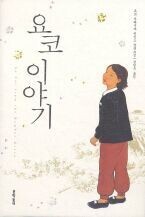hankyoreh
Links to other country sites 다른 나라 사이트 링크
Korean-language sale of controversial children’s book halted

The Seoul publisher of the Korean translation of the children’s book So Far From the Bamboo Grove has decided to halt the book’s sale until further notice. The publisher cited recent questions about the activities of the father of the author, Japanese-American Yoko Kawashima Watkins, during Japan’s colonial occupation of Korea.
The book is currently being used as a reading text in a number of middle schools in the United States and has been the object of protest there by persons of Korean descent, who have raised questions of its historical authenticity. The book was published in 1986; the Korean translation has been on sale since April 2005.
"If, as has been suggested in the media, the author’s father was indeed a high-level official in Unit 731, we have to conclude that her silence or distortion about his activities goes beyond what is permissible fictionalization in an autobiographical novel," said Kang Tae-hyeong, president of the publishing house Munhak Dongne, in a statement issued Wednesday. "We are going to stop selling the book until all suspicions regarding the author’s father have been answered."
Unit 731 was a Japanese military unit that, among other atrocities, performed biological experiments on living human beings, especially on Koreans and Chinese, in Manchuria beginning in 1937 and continuing until the end of World War II.
"A book would not be a problem just because it was written by the daughter of a war criminal," Kang continued. "But we are taking this action because if she did indeed deliberately keep her father’s activities unclear or deliberately hid them, that does serious harm to the truthfulness of a work that purports to be an autobiographical novel."
Kang said, however, that he still thought the book a "meaningful" one. "It makes you think about violence against women in war, an issue that has been ignored in the existing nationalist view that Japanese were by definition perpetrators and our people were without exception the victims." The book depicts several scenes of rape and other violence by Koreans toward Japanese leaving Korea following World War II.
"We intend to start selling the book again if the suspicions are answered," he said.
Asked about the possibility that the author’s father is found to have been a war criminal but one unassociated with Unit 731, Yeom Hyeon-suk, chief editor at Munhak Dongne, said the publishing house would have to "judge the weight of the matter" depending on what is learned about his activities.
Please direct questions or comments to [englishhani@hani.co.kr]
Editorial・opinion
![[Column] Park Geun-hye déjà vu in Yoon Suk-yeol [Column] Park Geun-hye déjà vu in Yoon Suk-yeol](https://flexible.img.hani.co.kr/flexible/normal/500/300/imgdb/original/2024/0424/651713945113788.jpg) [Column] Park Geun-hye déjà vu in Yoon Suk-yeol
[Column] Park Geun-hye déjà vu in Yoon Suk-yeol![[Editorial] New weight of N. Korea’s nuclear threats makes dialogue all the more urgent [Editorial] New weight of N. Korea’s nuclear threats makes dialogue all the more urgent](https://flexible.img.hani.co.kr/flexible/normal/500/300/imgdb/original/2024/0424/7317139454662664.jpg) [Editorial] New weight of N. Korea’s nuclear threats makes dialogue all the more urgent
[Editorial] New weight of N. Korea’s nuclear threats makes dialogue all the more urgent- [Guest essay] The real reason Korea’s new right wants to dub Rhee a founding father
- [Column] ‘Choson’: Is it time we start referring to N. Korea in its own terms?
- [Editorial] Japan’s rewriting of history with Korea has gone too far
- [Column] The president’s questionable capacity for dialogue
- [Column] Are chaebol firms just pizza pies for families to divvy up as they please?
- [Column] Has Korea, too, crossed the Rubicon on China?
- [Correspondent’s column] In Japan’s alliance with US, echoes of its past alliances with UK
- [Editorial] Does Yoon think the Korean public is wrong?
Most viewed articles
- 1‘We must say no’: Seoul defense chief on Korean, USFK involvement in hypothetical Taiwan crisis
- 2N. Korean delegation’s trip to Iran shows how Pyongyang is leveraging ties with Moscow
- 3Amnesty notes ‘erosion’ of freedom of expression in Korea in annual human rights report
- 4‘Weddingflation’ breaks the bank for Korean couples-to-be
- 5[Reportage] On US campuses, student risk arrest as they call for divestment from Israel
- 6[Column] Park Geun-hye déjà vu in Yoon Suk-yeol
- 7Korea sees more deaths than births for 52nd consecutive month in February
- 8[Editorial] New weight of N. Korea’s nuclear threats makes dialogue all the more urgent
- 9Will NewJeans end up collateral damage in internal feud at K-pop juggernaut Hybe?
- 10[Guest essay] The real reason Korea’s new right wants to dub Rhee a founding father